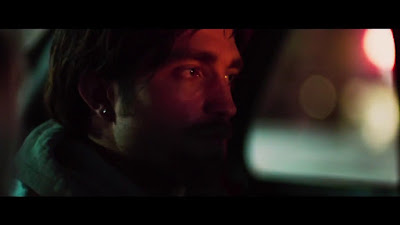Cinema as an art form is, at its best and worst, a reflection of its time that builds upon its predecessors to both excoriate injustice (both perceived and apparent) and to explore increasingly darker themes of social discontent. Ben and Josh Safdie's palpable urban nightmare, Good Time is a synth soaked sojourn of a generation whose soul was mortgaged in utero. Featuring one of the best lead performances of the decade and unforgettable, accusatory visuals, the Safdie's modern update on Goddard's Breathless is an unforgettable refutation of "by the bootstraps" economics and a pointed examination of urban decay.
Connie and his mentally handicapped brother Nick rob a bank with
designs on fleeing the country for a beach paradise. As things
continually go wrong, Connie embarks on a journey of ill-advised comradery and
violence as he attempts to escape the repercussions of a reality in which he
has no place. Josh Safdie and Ronald Bronstein's script is a story of
small moments, carefully interwoven in a tapestry of the absurd. There are moments of pain and moments of
love, blended together in an uncomfortable environment of pressured action.
The end of the tale is telegraphed, not only via symbolism, but by the
endless news cycle, both within the viewer's subconscious and slyly dappled
throughout the narrative. Robert Pattinson gives the performance of his
career as Connie.
Summoning his natural charisma, Pattinson embodies a
feral byproduct of inner city living, a man who both believes his own hype and
yet also tragically understands the futility of his cardboard kingdom. Connie
is an unstoppable force, jettisoned into a universe whose rules he does not
understand, and yet instinctually is adept at manipulating them. He
displays creativity and reckless problem-solving abilities that exist in a
vacuum of poverty and despair, with each subsequent criminal act serving as a
nail in his ego's coffin.
 |
| These color schemes make me want to.....enter....the....void. |
Sean Price Williams' cinematography has a remarkable soiled
quality, blending neon lit interiors with the dark recesses of the city to
present New York as a fallen metropolis, a place where dreams are dead before
they are conceived by the denizens of its underbelly. Oneohtrix Point
Never's pulsating score evokes thoughts of Tangerine Dream while also taking
the material into borderline horror territory. Where Scorsese's Taxi Driver used upbeat jazz to contrast
city life with hell on earth visuals, Never's compositions create an auditory
framework that becomes a prison from which escape is not only a pipedream, it
is a counterfeit, poisoned cloud that hangs overhead of Pattinson's dangerous
journey at every turn.
In theaters tomorrow, Good
Time is a film that demands attention. A fair criticism could be
levied against the film's treatment of female characters, but in the context of
Pattinson's narcissistic, self-contained universe, they make perfect sense.
The conclusion of the tale initially seems too abrupt, however, upon reflection,
it is the perfect summation to the sound and fury of the Safdie's lyrical
dissent on the soul of America's youth. A terrifying experience that
exposes the sewer stained heart of a forgotten populace, Good Time is a near perfect scream into a void of degeneracy.
Share the drugs with your friends.
Score
-Kyle Jonathan


